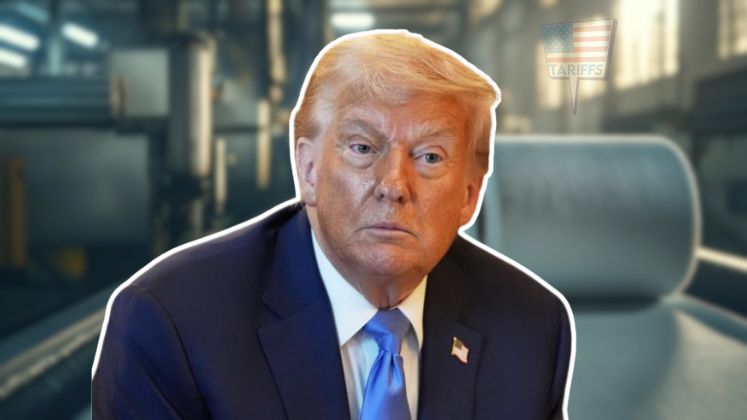The Confederation of Indian Textile Industry (CITI) has expressed serious concern over the potentially damaging effects of the recently announced effective 50% tariff rate imposed by the US on Indian textile and apparel products, which came into effect on 6th August.
CITI Chairman Rakesh Mehra stated that the 6th August US tariff announcement has dealt a major blow to Indian exporters, exacerbating an already difficult situation and severely weakening their competitiveness in the US market compared to other nations.
He further urged the Government to take swift action to support the textile and apparel industry, especially given its stated commitment to enhancing the sector’s global competitiveness and enabling Indian companies to become leading players internationally.
Mehra also expressed CITI’s hope that a bilateral trade agreement (BTA) between India and the US will come to fruition soon. He noted that a well-structured agreement that safeguards India’s sovereign interests while maintaining fairness could prove beneficial for both countries.
In a similar vein, Sudhir Sekhri, Chairman of the Apparel Export Promotion Council (AEPC), expressed serious concern over the recently imposed 50% tariff on Indian apparel exports, calling it a major blow to the labour-intensive sector. According to him, the industry is in no position to absorb such a steep tariff hike. He noted that the government is likely aware of the severe implications of this increase, which could spell disaster for micro and medium-sized apparel exporters—particularly those heavily reliant on the US market—unless the Government of India intervenes with direct fiscal assistance.
The Clothing Manufacturers Association of India (CMAI) has voiced serious concern over the United States’ decision to raise tariffs on Indian apparel exports from 25% to 50%, describing the move as a significant blow to the sector.
Santosh Katariya, President of the association, noted that a 50% tariff would make Indian products 30–35% more expensive than those from competing nations like Bangladesh and Vietnam, severely undermining India’s competitiveness in global markets. According to him, international buyers are unlikely to absorb such a large cost disparity, which could result in a steep decline in export orders.
Vice President Ankur Gadia called on the Indian government to adopt a strong and proactive approach in response, urging it to pursue more balanced and equitable trade arrangements with the United States.
Chief Mentor Rahul Mehta remarked that while there remains hope that the tariff hike may be part of a broader negotiation strategy, there is an urgent need for both policymakers and industry stakeholders to collaborate on immediate solutions to cushion the impact of what he described as a harsh and damaging policy.
Sanjay Jain, MD of TT Ltd., echoed this point of view, saying that the industry is shocked with the imposition of the additional tariff of 25% by the US on such a short notice. All goods entering the US after 21 days would have to pay this tariff. And for the previous tariff, anything which was loaded before 7th August was exempted. With the earlier tariff there was some room for negotiation with buyers but with the addition it becomes 50% and added on top of that is the regular tariff of 15-16% which takes it to 65%. In such a case, neither the Indian supplier can compensate the buyer nor can the buyer bear it. As a result, it is highly likely that new orders will not come in and pending orders will have to be shipped at significant losses.
The solution to this could be to give immediate export incentives in cash to negate the effects of such tariffs. The money saved by cheaper oil should be given to the industry instead of the consumer. Another could be to put a retaliatory tariff on Pharma exports to the US.







